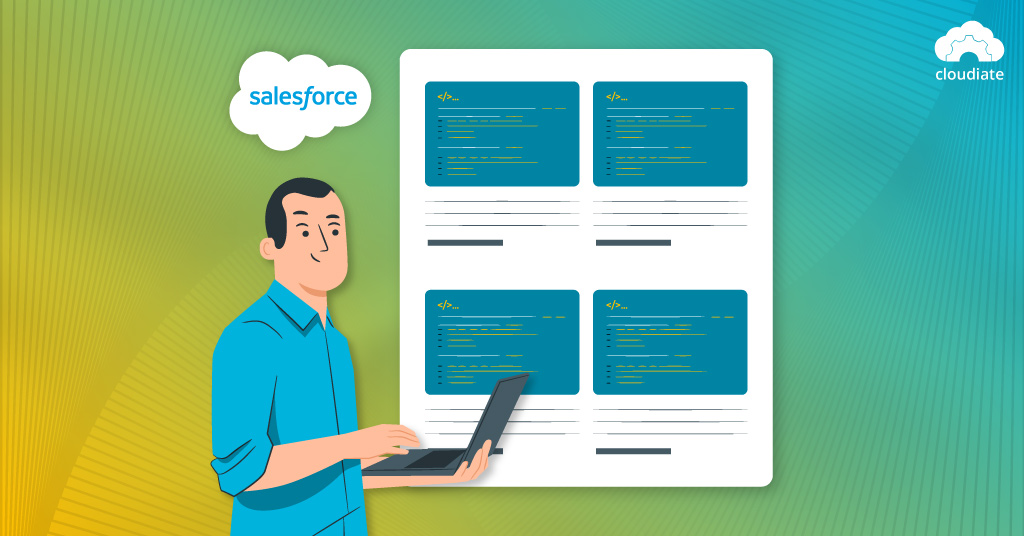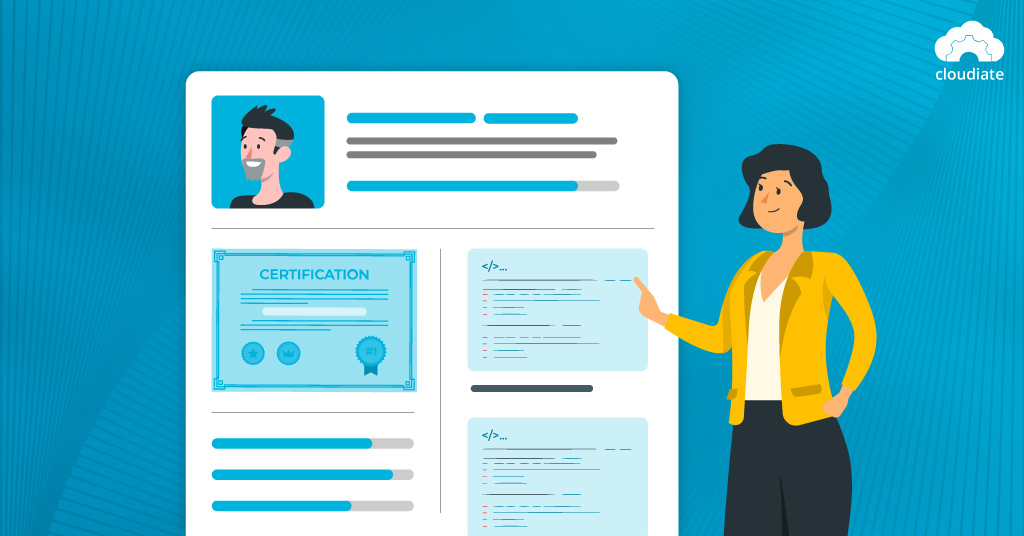Hiring a Salesforce Platform Developer is crucial, with far-reaching implications for your organization’s CRM strategy and overall success. Salesforce is the world’s leading Customer Relationship Management (CRM) platform, and a skilled developer can help you unlock its full potential.
Whether you are implementing Salesforce for the first time, customizing existing solutions, or enhancing your CRM capabilities, selecting the right developer is of utmost importance.
In this comprehensive guide, we will delve into the key factors that should be on your radar when hiring a Salesforce Platform Developer.
The Need For A Good Salesforce Platform Developer

Here are a few reasons why you must consider employing Salesforce Platform Developers:
1. Alignment with your business goals
Salesforce is a versatile and powerful CRM platform with extensive customization capabilities. Deploying it is not a straightforward task.
However, a skilled developer can tailor Salesforce to align precisely with a company’s unique business processes, ensuring it serves as a strategic asset rather than a one-size-fits-all solution.
2. Staying updated
Additionally, Salesforce continually evolves, with new features and updates regularly released. A Salesforce Platform Developer keeps a company’s CRM system up-to-date, using the latest functionalities to improve efficiency and competitiveness.
3. Integration
Moreover, these developers are adept at integrating Salesforce with other critical systems within the organization, creating seamless workflows and data synchronization.
4. Enhancing brand offerings
Ultimately, by hiring a good Salesforce Platform Developer, companies ensure that their Salesforce environment remains agile, adaptable, and optimized to drive growth and customer satisfaction.
Factors to Consider While Selecting the Best Salesforce Platform Developer

Here are some things to keep in mind while hiring a Salesforce Platform Developer:
1. Salesforce Certification and Expertise
One of the foundational pillars of a proficient Salesforce Platform Developer is Salesforce certification. Salesforce Certified Platform Developer I and II, can serve as proof of their expertise in building custom applications, automating processes, and adeptly handling data within the Salesforce ecosystem.
These certifications underscore a developer’s commitment to mastering the platform’s intricacies and staying updated with its ever-evolving capabilities.
They should also have a firm grasp of technologies like Lightning Components and Visualforce, which are pivotal for crafting tailored solutions. Their expertise extends to seamless integration, enabling Salesforce to harmonize effortlessly with other systems in your tech stack.
2. Industry Experience
When evaluating potential Salesforce developers, consider whether they have previously worked within your industry or have undertaken projects that resonate with your business objectives. Hiring one who understands the nuances of your industry can be a game-changer. These developers come equipped with insights into the unique challenges and requirements that are integral to your business landscape.
Hence, they can align Salesforce solutions precisely with your industry’s demands, resulting in CRM solutions that are not just functional but also strategic assets. Their familiarity with industry-specific regulations, trends, and best practices can lead to solutions that are effective, compliant, and future-proof.
3. Project Portfolio
A developer’s project portfolio offers a tangible record of their expertise and a glimpse of what they can bring to your organization. When perusing a developer’s portfolio, pay close attention to projects that align with your goals and aspirations.
Whether it’s optimizing Service Cloud for enhanced customer support or crafting custom Lightning components to address specific business needs, their portfolio should reflect projects that resonate with your CRM vision.
4. Technical Proficiency
They should have a deep understanding of the Salesforce platform, expertise in programming languages, and hands-on with new technologies like Einstein that empower customization and integration.
Salesforce development hinges mostly on two primary programming languages: Apex and JavaScript. A proficient developer should be well-versed in languages and technologies like Lightning Components and Visualforce, as they form the foundation for creating custom functionalities, automating processes, and extending the capabilities of Salesforce.
5. Communication Skills
Effective communication forms the backbone of any successful project. It bridges the gap between your organization’s business requirements and the technical solutions that the developer will design and implement. A developer’s ability to comprehend your specific needs and translate them into technical specifications is paramount.
A skilled Salesforce developer should be adept at active listening, asking pertinent questions, providing clear, concise responses and providing timely updates. They should be able to explain complex technical concepts in a manner accessible to non-technical stakeholders, facilitating a shared understanding of project objectives.
6. Problem-Solving Aptitude
Problem-solving is an art that distinguishes the exceptional from the ordinary. Salesforce Platform Developers are often confronted with intricate challenges that demand innovative solutions that test their ability to analyze issues, devise effective remedies, and implement them efficiently. This is a testament to their problem-solving aptitude.
Therefore, look for developers who relish tackling complex problems and view them as opportunities for growth and innovation. They should be able to systematically break down issues, deep dive into root causes, and apply creative thinking to develop solutions beyond quick fixes.
7. Collaboration and Teamwork
Salesforce development projects rarely operate in isolation and involve cross-functional teams comprising administrators, analysts, project managers, and other stakeholders. Collaboration and teamwork are, therefore, essential traits for a Salesforce Platform Developer.
An effective developer should be skilled at working harmoniously within a team environment. They should be receptive to feedback, open to diverse perspectives, and willing to share their knowledge and expertise with others.
8. Customization vs. Configuration
Salesforce is a versatile platform that allows for both configuration and customization. When hiring a Salesforce developer, it’s crucial to consider whether your project requires more configuration or customization.
Some projects may be well-served by skilled administrators who can effectively configure Salesforce using standard features. These configurations can often address common business needs without the need for extensive coding and creation of customized, complex solutions.
9. Project Management and Time Management
Project management involves creating comprehensive plans, identifying dependencies, allocating resources, and monitoring progress. It’s about keeping the project on track, ensuring it aligns with business goals and stays within budget.
A Salesforce Platform Developer should be capable of managing multiple projects effectively, from defining project scopes and objectives to setting realistic timelines and milestones.
Final Note
The process of hiring a Salesforce Platform Developer is multifaceted and demands a comprehensive evaluation of qualifications, experience, technical proficiency, and soft skills. Effective communication, problem-solving, and collaboration are just as important as technical expertise.
Keeping the above-listed pointers in mind will help you hire a good Salesforce Platform Developer and lead to a more effective Salesforce deployment, giving your business a competitive edge in today’s dynamic marketplace.
If you’re looking to hire a Salesforce-certified team of dilligent, smart and intelligent developers, reach out to us at Cloudiate let us help you.
Check out our client success stories to see how much value we can deliver and learn more about how we can help you unleash the full potential of Salesforce and grow your business.

